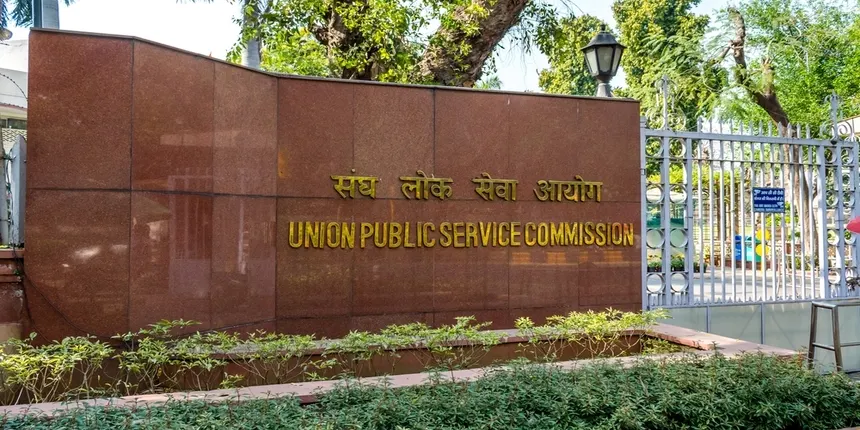UPSC Full Form: What Does UPSC Stand For and Its Significance
Are you curious about what UPSC stands for and why it is important? The UPSC is an acronym that represents one of India’s most important organizations. This article provides an in-depth explanation of what UPSC Full Form is, its significance, and how it impacts the Indian civil services.
Read Other Full Forms

Introduction to UPSC
The Union Public Service Commission (UPSC) is a constitutional body that conducts civil service examinations and is responsible for recruiting and selecting candidates for various government services and posts. Established on October 1, 1926, the UPSC is a central recruiting agency responsible for appointments and examinations to various services of the Union.
What is the full form of UPSC?
UPSC stands for Union Public Service Commission. It is one of the most prestigious organizations in India that conducts various competitive examinations for recruitment in government services.
Historical Background of UPSC
The establishment of the UPSC was recommended by the Royal Commission on the Superior Civil Services in India, which was set up in 1924. The Commission’s report recommended the formation of a public service commission for the recruitment of civil servants.
UPSC as a Constitutional Body
The UPSC is a constitutional body under Article 315 of the Indian Constitution. It is responsible for conducting examinations for appointments to the services of the Union and the All India Services. The UPSC is also responsible for advising the Government on matters related to recruitment, appointment, promotion, and disciplinary matters.
Functions of UPSC
The primary function of the UPSC is to conduct examinations for recruitment to various services and posts under the Government of India. The UPSC also advises the Government on various matters related to the recruitment, appointment, and promotion of civil servants. The UPSC also conducts interviews for candidates who have cleared the written examinations.
Eligibility Criteria for UPSC Examinations
To be eligible for the UPSC examinations, candidates must have a bachelor’s degree from a recognized university. The age limit for the UPSC examination is between 21 to 32 years, and the age limit varies for different categories.
UPSC Exam Structure
The UPSC examination comprises three stages: Preliminary Examination, Main Examination, and Personality Test (Interview). The Preliminary Examination consists of two papers of objective-type questions, and the Main Examination consists of nine papers of conventional essay-type questions. Candidates who clear the Main Examination are called for the Personality Test (Interview).
UPSC Exam Syllabus
The UPSC examination syllabus covers a wide range of topics, including Indian Polity and Governance, Indian Economy, General Science, Environment, and Ecology, History of India and Indian National Movement, and Current Events. The syllabus is designed to test the candidate’s knowledge of a broad range of subjects.
Preparation Strategies for UPSC Examinations
To crack the UPSC examinations, candidates must have a clear understanding of the examination pattern, syllabus, and current affairs. They should have a good command of English and Hindi, basic mathematical skills, and general knowledge. Candidates should also develop a habit of reading newspapers and magazines regularly.
Importance of UPSC Examinations
The UPSC examinations are considered to be one of the toughest examinations in India. Clearing the UPSC examinations opens up a plethora of opportunities for candidates to work in various government services and departments. It is the gateway to the prestigious Indian Administrative Service (IAS), Indian Police Service (IPS), and Indian Foreign Service (IFS).
Benefits of Clearing UPSC Examinations
Clearing the UPSC examinations not only opens up job opportunities but also provides job security, a stable income, and the opportunity to serve the nation. It is a platform for individuals to contribute to society and work towards the development of the country.
Criticism of UPSC Examinations
The UPSC examinations have faced criticism over the years for their tough nature and lack of transparency. Many candidates have complained about the lengthy and arduous examination process and the subjective nature of the evaluation process.
UPSC Reforms and Changes
The UPSC has undergone various changes and reforms over the years to make the examination process more transparent and fair. The introduction of technology in the examination process, the reduction of the age limit, and the increase in the number of attempts are some of the changes that have been introduced in recent years.
Conclusion
The UPSC is a crucial organization responsible for recruiting and selecting candidates for various government services and posts. Clearing the UPSC examinations opens up a plethora of opportunities for candidates to work in various government services and departments. It is a platform for individuals to contribute to society and work towards the development of the country. With the changes and reforms introduced by the UPSC, the examination process is becoming more transparent and fair, making it accessible to all candidates who aspire to serve the nation.
Frequently Asked Questions
Q.1 What is the age limit for the UPSC examination?
The age limit for the UPSC examination is between 21 to 32 years, and the age limit varies for different categories.
Q.2 What is the UPSC examination pattern?
The UPSC examination comprises three stages: Preliminary Examination, Main Examination, and Personality Test (Interview).
Q.3 What is the eligibility criteria for the UPSC examination?
Candidates must have a bachelor’s degree from a recognized university to be eligible for the UPSC examinations.
Q.4 What are the benefits of clearing the UPSC examinations?
Clearing the UPSC examinations opens up job opportunities, provides job security, and offers the opportunity to serve the nation.
Q.5 What are the changes introduced by the UPSC in recent years?
The UPSC has introduced changes such as the introduction of technology in the examination process, reduction of the age limit, and increase in the number of attempts.

